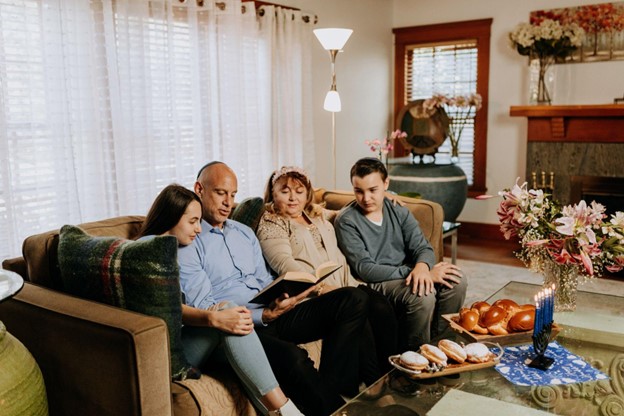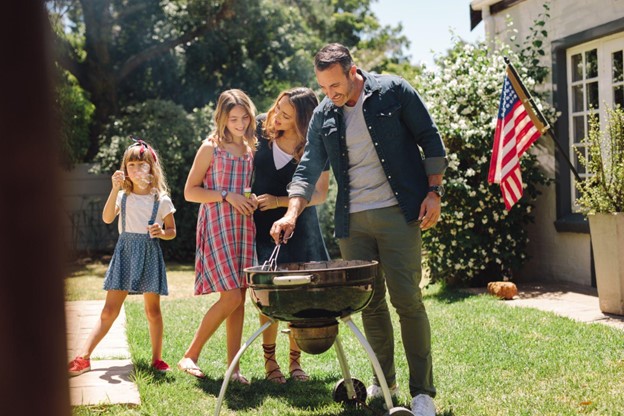Social media has changed our preferred methods of winding down after a hectic day. Throughout the week, we find ourselves busy chauffeuring our kids to school, daycare, or after-school activities, attending our jobs or educational institutions, and running errands.
Now let’s be clear, it’s not that our predecessors weren’t also living demanding lives. Before the factories appeared, our ancestors toiled away in the field, cultivating and harvesting crops. Yet, in the past, people found solace and rejuvenation by getting together with their communities to sing or dance.
Sadly, these days, we retreat into the isolation of our handheld devices, seeking solace in the digital realm instead of the real world. Social media platforms serve to foster a culture of mindless consumption rather than active creation and discourage active participation by promoting passive observation.
It’s no wonder that we’ve started to forget about the significance and true essence of holidays such as Memorial Day, Labor Day, and Veterans’ Day. The influence of social media, with its relentless promotion of vapid pastimes, has led us astray. These important holidays, intended to commemorate and honor, have been gradually reduced to mere opportunities for leisure.
Instead of cherishing our traditions, we find ourselves fixated on indulging in endless hours of social media scrolling or engaging in extravagant shopping sprees, all in an attempt to emulate the lifestyles of the rich and famous.
In this digital era, the sanctity of these remembrance days becomes obscured as their true meaning is overshadowed by superficial distractions.
Defining Family Traditions
When we talk about family traditions, Christmas or Thanksgiving gatherings immediately come to mind. However, let’s not confine the concept of family traditions solely to cultural festivities. Family traditions can be unique to each family, such as having family dinners on a particular day of the week or visiting a particular restaurant on somebody’s birthday every year.
In the tapestry of our lives, these unique and intimate traditions are woven, ensuring the preservation of our familial bonds and the perpetuation of our shared values.
Why Are Family Traditions Important?

Family traditions matter on two different levels. Firstly, they serve as custodians of our cultural heritage, preserving the values and customs that define our collective identity. Secondly, these family traditions play a pivotal role in nurturing profound connections among family members. They create moments of togetherness, forging unbreakable bonds that transcend generations.
Preserving Cultures
When we focus on meaningfully celebrating cultural holidays such as Memorial Day and Veterans’ Day, we pay homage to the brave soldiers who made the ultimate sacrifice to defend the freedom of our country. By reflecting on their sacrifice, we reinforce the core values of freedom and selflessness, ensuring that they remain firmly ingrained in the hearts and minds of future generations.
Also, when we take the time on Labor Day, a holiday conceived to recognize the commendable achievements of organized labor we demonstrate our profound respect for a robust work ethic. By imparting this respect to our children, we instill in them the importance of honoring hard work and the virtues it encompasses.
The establishment of annual family traditions that revolve around holidays of cultural and historical significance becomes an invaluable means to preserve our cherished heritage. These traditions serve as steadfast pillars, upholding the very essence of our nation and fortifying the ties that bind us together as a united people.
Nurturing Bonds
Not only do family traditions embody the essence of what constitutes a family, but they also serve as a testament to the core values that bind us together.
Love and mutual respect, the pillars of strong families, are the bedrock upon which our society thrives. Family traditions, deeply cherished and proudly upheld, serve as powerful conduits of love, enabling us to manifest our affection through the sacred act of exchanging gifts and forging joyous memories.
Offering Stability
In our ever-changing world, where lifelong employment at a single factory is a thing of the past, we are constantly on the move, shifting between cities and even countries. Amidst this whirlwind of change, children bear the weight of uncertainty, experiencing stress and a sense of detachment.
Family traditions provide stability and a sense of identity for children. Research shows that when children interact with their grandparents and participate in these traditions, they find comfort and their self-esteem soars. With emotional and social support, they become resilient against peer pressure and stand confidently. Furthermore, these strong bonds often lead to academic success, highlighting the transformative power of family traditions.
Ways to Preserve Family Traditions
Now that we’ve discussed the importance of family traditions, let’s take a look at some practical ways to nurture them:
Talk to Older Relatives
Engaging in conversations with older family members is a powerful way to preserve family traditions—bring your kids along too! These interactions will instill a deep respect for the wisdom and experiences of their seniors. And if you don’t have children, consider recording your conversations with your parents so that you have precious memories to cherish forever.
Research Your Heritage
Each of us comes from a wealth of family histories; unfortunately, not everyone is fortunate enough to know them. Consider finding out which country your ancestors came from and taking the time to explore your cultural background. Learning about the customs and traditions of your ancestors is a great way to strengthen your identity—who knows, maybe you’ll also get inspired to incorporate those traditions into your family life.
Collect Family Heirlooms
Family heirlooms, such as photographs, recipes, or treasured objects, hold immense value. They serve as poignant reminders of your family’s rich history. Consider integrating them into your family traditions, such as decorating your Christmas tree with toys you inherited from your parents or grandparents. By doing so, you not only honor the legacy of your ancestors but also weave a thread of enduring heritage into your own family’s celebrations.
Host Family Gatherings
Regularly organize family gatherings to bring everyone together. Whether it’s a holiday celebration or a simple get-together, these occasions provide opportunities for shared experiences, storytelling, and bonding. They help create happy memories that you can hold on to in challenging times.
Create Your Own Traditions
While it is essential to honor and preserve existing traditions, it is also important to create new ones that are meaningful to your family. Remember, not everyone is fortunate enough to experience the love that comes from growing up in a strong and nurturing family. Yet, challenges experienced in childhood should not be a barrier to building strong families powered by love and respect.
Your invented family traditions can be anything from activities to rituals to special outings that hold significance for you and your loved ones. By establishing these new traditions, you will contribute to the ever-evolving tapestry of your family’s history while nurturing strong connections with your family members.
Preserving family traditions helps maintain cultural heritage and has a positive impact on all family members. Unfortunately, social media is driving us apart. As we increasingly prefer to relax by watching social feeds on Facebook or Instagram, we have less and less time to engage in family activities and honor family traditions and values.
At Nest Social, we recognize the importance of preserving family traditions. That’s why we have built a family-first social platform that is caring, genuine, and collaborative. It is meant to help families stay connected in challenging times of social alienation. Join us today!

